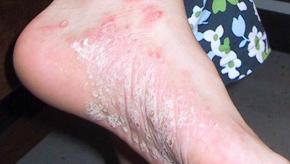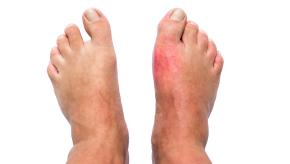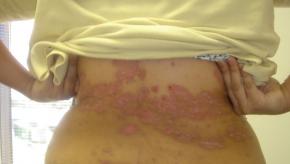News
Sex Disparities in PsA/SpA
Dr. Eder delivered an illuminating talk at RheumNow Live 2024 on sex differences in psoriatic arthritis; the disease may manifest differently in men and women, and therapeutic responses may differ between the sexes.Co-management of Psoriatic Disease
It is a common clinical scenario to see someone with both severe psoriatic arthritis and skin psoriasis. In an ideal world this would involve a combined clinic with our local friendly dermatologist. For many of us, however, this is not practical for many reasons. The excellent Saturday morning session on choosing systemic therapies in psoriatic disease at RheumNow Live 2024 from dermatologist extraordinaire Dr. April Armstrong was therefore hugely insightful.Oral IL-23 Inhibitor Effective in Psoriasis
The NEJM has published the results of the FRONTIER 1 trial demonstrating the efficacy of JNJ-77242113, an oral interleukin-23 (IL-23) receptor antagonist peptide, in patients with psoriasis (PSO).
VITAL Info on Autoimmune Disease (2.9.2024)
Dr. Jack Cush reviews the journal reports from the past week on RheumNow.com. Highlights are summarized by three songs: "Stairway to Heaven", "You're No Good", and "How Long (has this been going on)".
Poly-Refractory Rheumatoid Arthritis
Refractory of difficult to treat (D2T-RA) rheumatoid arthritis (RA) comprises a minority of patients that can be categorized by clinical and imaging parameters to formulate a better therapeutic approach.
Inflammatory Arthritis in Systemic Sclerosis is Problematic
Inflammatory arthritis (IA) is a common manifestation in systemic sclerosis (SSc), affecting nearly one-third of patients.
VITAL Study - Autoimmune Prevention Requires Continued Supplements
In the 2 years that followed the termination of the VITAL study, the preventative effect of vitamin D on incident autoimmune disease disappeared with supplement discontinuation; but n-3 fatty acid treated individuals had a sustained benefit in reducing the risk of autoimmune disease.
Determinants of Gout Flares
Approximately 12 million US adults in the US have gout. Two recent literature reports highlight contributors to gout flares.
Racial and Ethnic Determinants of Psoriatic Arthritis
A study from a large metropolitan registry of psoriatic arthritis (PsA) patients showed several racial and/or ethnic groups are underrepresented and demonstrate differences in disease activity.Autoimmune disease and pregnancy
For many aspiring mothers with autoimmune disease, pregnancy can be daunting and full of unknowns. In some cases, those suffering from specific autoimmune conditions have chosen to forego pregnancy altogether due to concerns about their disease treatments and adverse pregnancy outcomes.
Leaving Academia (2.2.24)
Dr. Jack Cush reviews the news and journal reports from the past week on RheumNow.com. This week we discuss hipsters undergoing hip replacement, pregnancy outcomes in RA and the future of academic clinicians.













